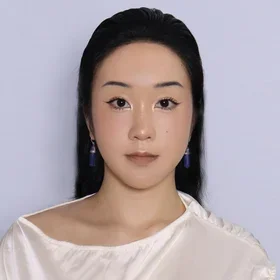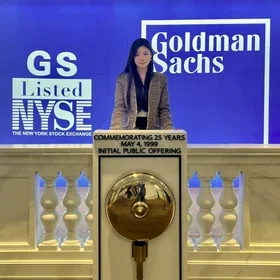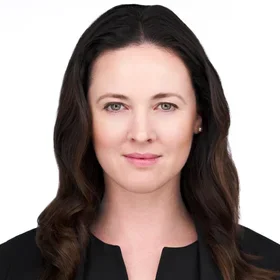Zontee Hou, a graduate of and former lecturer in the M.S in Strategic Communication program at SPS, is the founder of the Brooklyn-based consultancy Media Volery and head of strategy for the respected consultancy, Convince & Convert.
She is also one of the judges for The Greater Good Challenge, a business pitch competition hosted by the Career Design Lab and made possible with support from the Beba Foundation and Turkish Philanthropy Funds, taking place this fall.
We sat down with Zontee to learn about her approach to The Greater Good Challenge and gather important advice for participants as well as entrepreneurs of all sorts.
We are living through unprecedented times. What do you see as a big or interesting opportunity for contestants to address in their business pitches?
In times of great upheaval, we see true innovation. People reconsider what we've always taken for granted and find a way to adapt. In the Greater Good Challenge, I hope to see many projects that address the fundamental problems that we face and showcase the ways in which businesses can address these issues in creative ways.
To me, the opportunity is to showcase why there have been barriers up to this point and how the business can and will find a way to work around these barriers or use these barriers to their advantage. Ten months ago, no one would have believed that so many global industries would have been able to go mostly remote, but here we are. We have many unmet other needs in our world today, from the climate crisis to socioeconomic inequality; I hope to see our teams meet these challenges through innovation.
As a Strategic Communication alumna and former lecturer on the faculty, can you speak to the importance of persuasion and/or presentation skills for turning an idea into a reality?
Now, more than ever, trust is paramount in how we conduct business in the world. Whether I'm working with international organizations like IMF, the UN FAO, and Gassnova or corporations like Hilton and Oracle, I work with them to identify what will resonate with their audiences and speak to them in the ways that align the message with the delivery.
As Marshall McLuhan famously said, "The medium is the message." And what I've always emphasized in the classroom is that McLuhan meant that the medium comes with all of the baggage of social experiences that you've had before using that medium. For example, how you perceive an Instagram post's credibility is different from how you perceive a keynote speech. With that in mind, each team must marry their message with a presentation that convinces us, the judges, of its truth and its trustworthiness.
A persuasive presentation showcases all of the reasons that your audience should trust you—to bring the idea to fruition, to be a reliable partner, to keep your promises. As each team develops their pitches, they must think about how the audience will perceive and receive the information and tailor their presentations to the needs and motivations of the audience.
What are you hoping to see out of the Greater Good Challenge contest submissions?
It's not enough to have brilliant ideas; you must also be able to rally teams with the expertise and skills to bring them to life. What I hope to see within the submissions is evidence of a thoughtful, process-oriented approach that pushes the envelope in terms of what the teams want to accomplish, but that also acknowledges the hurdles to be faced.
What advice do you have to the teams as an entrepreneur and business owner?
First of all, keep in mind that the job of an entrepreneur isn't just being good at your one skill area. I tell people that I do 13 jobs, only one of which is the one I set out to do. Acknowledge that you'll also need to lead a team and inspire others to work with you on your vision. If you're not the strongest team lead or communicator, get coaching in these areas. It will make you a stronger business leader, and it will help you accomplish your business goals faster.
Secondly, I tell people that it's hard to be it when you can't see it. If you belong to a minority group, you're a woman, or you've taken an unusual path to starting your company, it can be easy to be intimidated or lose confidence. Find people, whether directly in your vertical or not, who have experiences like yours to be your support system. Whether it's a peer group or a mentor, finding others who understand your challenges will make you feel less alone and more empowered.
Third, get comfortable with rejection. Let's apply the Pareto principle here: 80% of your success will come from 20% of your contacts. The others? It's okay if they say no, if they don't get you, if they're uninterested. Accept that rejection is part of the process, and it will be easier to keep going. Keep looking for the 20% that understand where you want to go.
Learn more about the Greater Good Challenge, including important dates and details on how to enter.


